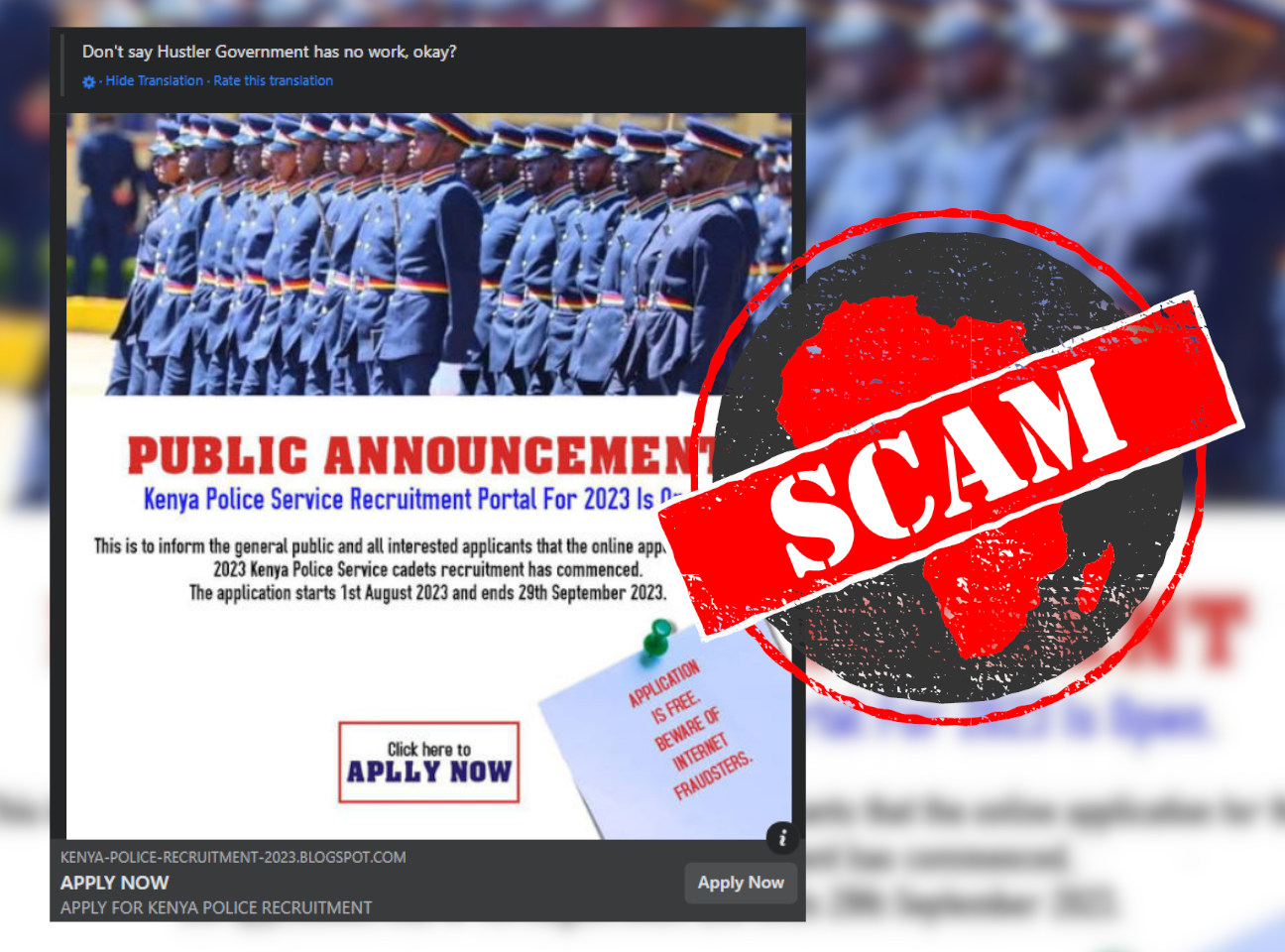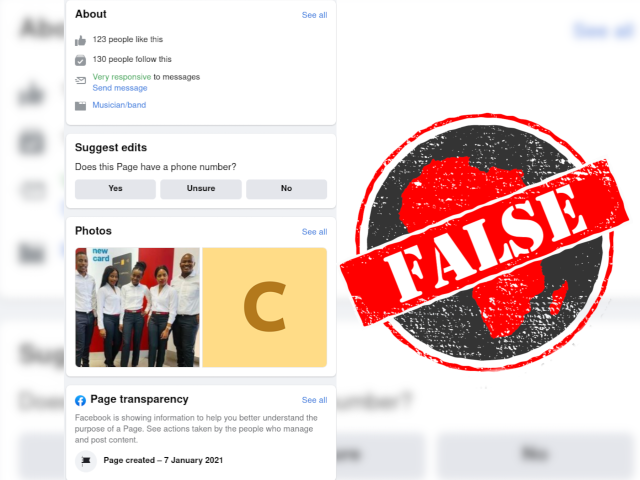IN SHORT: Jobs in Kenya's police force are attractive to many. But a call for applications for 2023 is not what it seems and should be ignored.
An advertisement for jobs in Kenya’s police force has been posted on Facebook.
“Public Announcement: Kenya Police Service Recruitment Portal for 2023 is Open,” the ad reads.
The Kenya Police Service is the country’s law enforcement agency.
According to the ad, the recruitment period begins on 1 August and runs until 29 September 2023.
The ad, first posted in August, links to an application form hosted on another website. The applicant is asked to provide personal details such as their full name, gender, email address, telephone number, and county of residence.
After filling in the form, the job seeker is asked to “click CHECK below to confirm if you are eligible to join Kenya Police Service”.
This is followed by a request for further information. Applicants are asked to confirm their name and indicate their level of education.
The final step is to share the link with five groups or 15 friends on WhatsApp "so that they can also be aware of this so that they do not fall into the hands of SCAMMERS who make false promises to help them get recruited".

Don’t fall for it
This kind of a post uses a tactic known as engagement bait. The more people interact with the post by liking, sharing or commenting, the greater the reach of the link. In the meantime, the intended job application does not progress.
Kenya’s National Police Service has also flagged the recruitment notice as “FAKE”.
Recruitment to the Kenyan police service is highly coveted. Africa Check has debunked similar scams before.
Users should be wary of posts that require them to share their personal information. This can lead to identity theft and fraud.
Republish our content for free
For publishers: what to do if your post is rated false
A fact-checker has rated your Facebook or Instagram post as “false”, “altered”, “partly false” or “missing context”. This could have serious consequences. What do you do?
Click on our guide for the steps you should follow.
Publishers guideAfrica Check teams up with Facebook
Africa Check is a partner in Meta's third-party fact-checking programme to help stop the spread of false information on social media.
The content we rate as “false” will be downgraded on Facebook and Instagram. This means fewer people will see it.
You can also help identify false information on Facebook. This guide explains how.



Add new comment